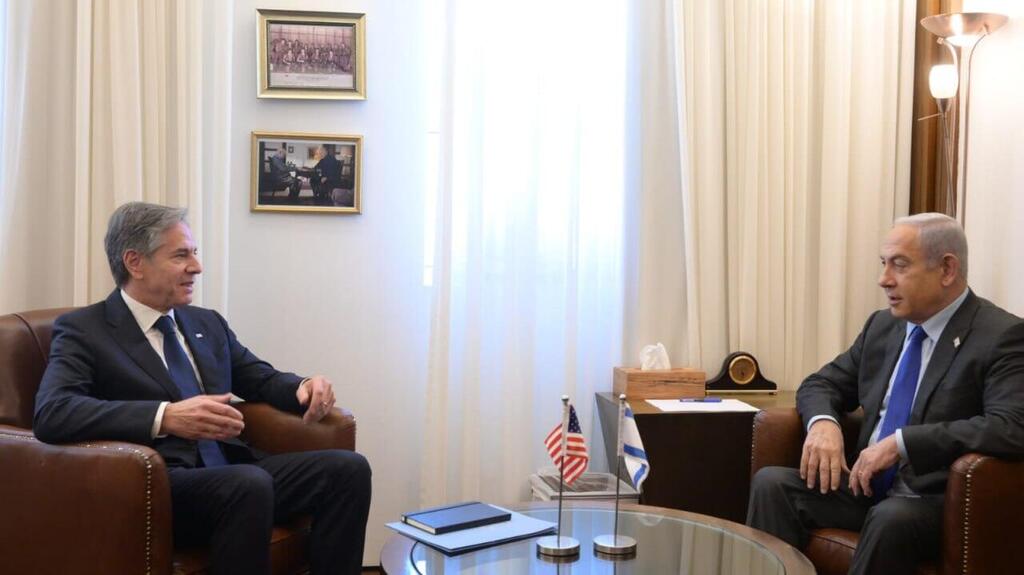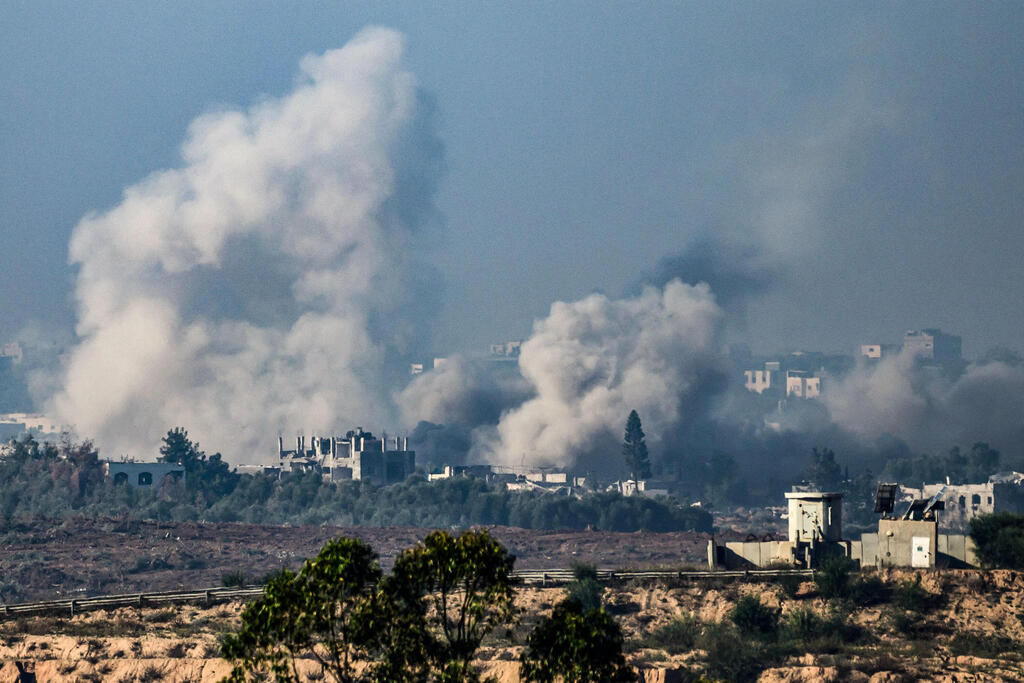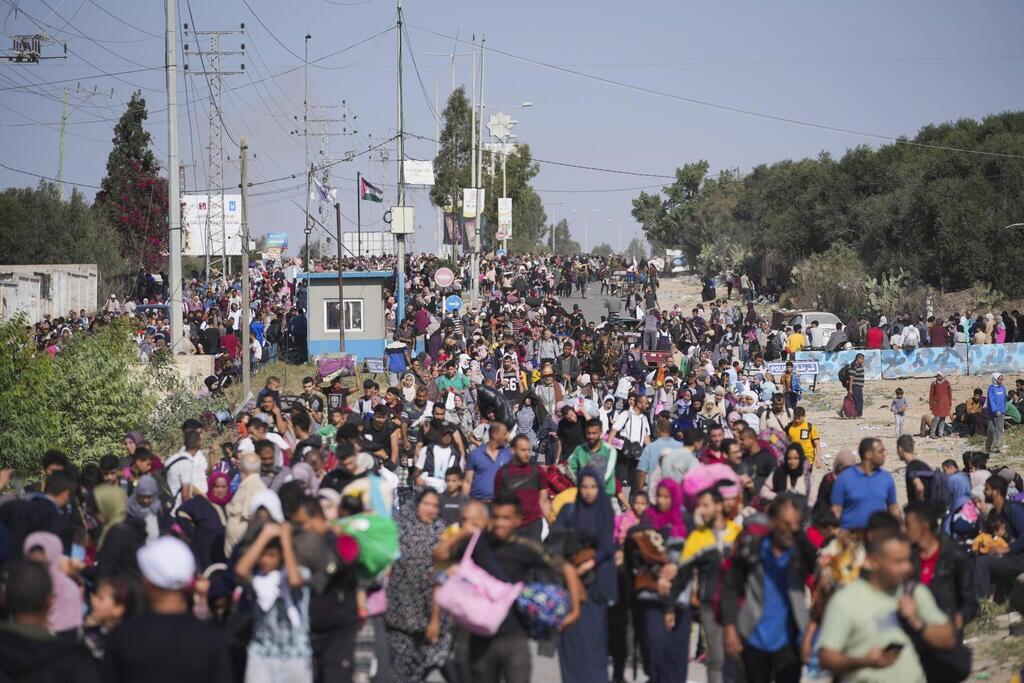After a week of streaming tears, hugs, reunions and a national sense of gratitude following the return of over 80 hostages held inside the enclave for almost two months, the IDF is back at it like no pause took place in the first place. Well, almost... This time Israeli fighter jets did not soften the way so ground forces would encounter a lackluster Hamas fighting force.
Read more:
The pause did have some effect on our troops, by essentially halting the momentum. On top of that, Israel had the United States breathing down their necks, trying to limit IDF attacks in southern Gaza and the Egyptians trying their best to stop Israel from operating anywhere near the Rafah crossing, on the strip's southern tip.
This could leave us in a rather problematic state, where Hamas does not face complete and utter collapse and does not have to succumb to a deal relinquishing all remaining hostages at once, which would have put an unceremonious halt to Yahya Sinwar's daily babbling TV episodes.
While there is no price tag you can put on the sheer cries of unrivaled joy emanating from family members who got to reunite with their loved ones, there is another inescapable truth - A widespread and well-coordinated military offensive is not akin to a home movie you can pause and resume at your discretion while expecting no repercussions.
Some reservists used the break to go home and see their families, which would undoubtedly shift something in their mental state. Seeing your wife and kids after almost two months and then having to leave them again, possibly never to return, requires a sense of compartmentalization not many possess.
Active duty troops remained in the general vicinity of the war arena, which left them exposed to threats whose peril remained present due to Hamas' inclination to defy any ceasefire, temporary or otherwise, that was set in place. The strip's northern section, while looking like a ghost town, was not entirely devoid of Hamas presence, which became increasingly evident as their jubilation, as muted as it might have been, became more pronounced as the pause went on.
3 View gallery


Secretary Blinken and Prime Minister Netanyahu, defining what's next
(Photo: Amos Ben-Gershom/GPO)
There is some duality with regards to Israeli voices about the subsequent steps of this war. Sure, the political echelon and IDF's highly ranked officers were adamant about resuming the war full force, but troops on the ground, active duty and reservists alike, were mindful of what would happen should a ceasefire become permanent. Would reservists leave? Would active duty troops begin to sense they were duped into a halfway effort that was declared as "ending Hamas entirely"?
If you thought the raging argument about judicial overhaul had sowed the seeds of chaos within the IDF, ending the war before its Hamas is liquidated, could cause an imminent collapse, as the cycle of ironclad trust between the military and the government would cease to exist altogether. The message has to resonate loud and clear - This Hamas-ending venture must resume, and the only things up for debate are operational details.
But even as everyone in Israel is on the same page, different voices come from the Biden administration. While the President has never wavered in his call to end Hamas presence within the enclave and pledging whatever military support Israel might require, Secretary Blinken's most recent visit to Israeli shores was an attempt to clearly define the areas for which it is acceptable for the IDF to operate in southern Gaza. After all, that's where Israel clearly told Palestinian civilians to go.
US National security Advisor, John Kirby, reiterated the importance of Israel taking innocents into account before making any move in that area, and Blinken equally emphasized avoiding hurting those who are uninvolved, as well as no longer telling Palestinian population to move again and avoid bombing any more buildings in that general vicinity.
Defense Minister Gallant replied by emphasizing the righteousness of the war against "Hamas-ISIS" and the importance of bringing all hostages back home where they belong, and he defined these objectives as tasks that could take months to complete. Biden's political considerations, with a possible rematch against Trump looming in the horizon, mean he might not have that kind of time.
With Biden's ever-watchful eye upon them, Israeli officials have to dot the I's and cross the T's with regards to taking on Hamas in Khan Younis and the Rafah crossing since that is where remaining Hamas forces store much of their smuggled munitions. Short of that, Hamas will not be eradicated as promised, and even the worthy objective of returning all hostages might never come to fruition. This was echoed in an IDF officer's recent conversation with Yedioth Ahronoth.
Which serves to emphasize Israel's inability to strike the iron while it's hot. If it began operating in Khan Younis earlier, Blinken would have found it ten times more difficult to convince Israel about the need for being careful, as it would have been Fait Accompli, and while the Egyptians don't want Israel operating anywhere near the Rafah crossing, it's time for us to look them in the eye and ask them where they've been all this time, and what exactly explains their failure in stopping Hamas from using that area as a munitions boon. After the war, Shin Bet might also ask itself why it failed to confront the Egyptians earlier on that specific point.
And while the Gaza strip has been receiving the lion's share of attention when it comes to taking on Hamas, this last weekend saw three Israelis killed in Jerusalem in yet another Hamas-inspired terrorist attack. Shin Bet will undoubtedly examine how this came about, but there is an urgent need to prevent Jerusalem from becoming another powder keg. Israel has enough of those going on, courtesy of Lebanese and Yemenite proxies of Iran.
That's exactly why the IDF has recently stepped up its raiding schedule within the West Bank, hoping to nip any and all terrorist ventures in the bud, which thus far has resulted in 2,100 detainees, with Hamas comprising roughly half of them. Dozens of them simply waved the white flag, knowing a confrontation with the IDF would likely be the last thing they ever do.
Still, Hamas' upper echelon within Gaza does not share those conclusions as of yet, and might require a bit more convincing, in the form of an intense IDF campaign that would leave Hamas completely out of options.
First published: 10:34, 12.03.23




